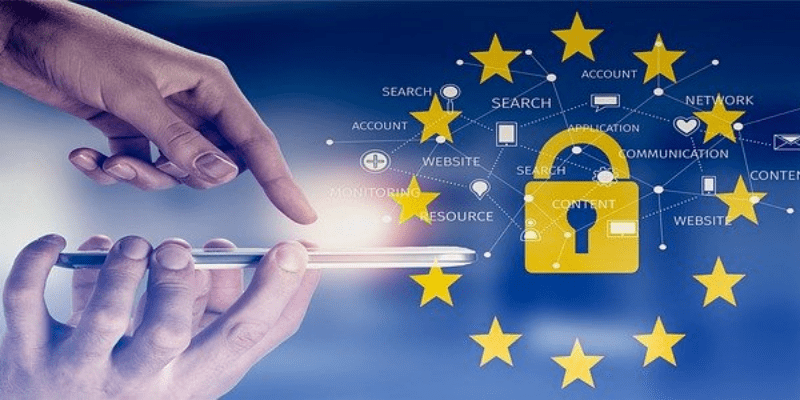The momentum for privacy protection among consumers and legislators seems to be growing as the year winds down. While data brokers and marketers have to adjust to new realities, online privacy advocates celebrate new and existing data protection regulations. Some notable exceptions make it seem like 2021 was an excellent year for privacy & Privacy Policy. New regulations will be in effect in Japan, Australia, China, and Saudi Arabia and China already has its bills. Canada, India, and South Korea will likely soon implement privacy protections.
Apple and other tech giants are making their software more privacy-friendly. The privacy protection market is also set to rise.
Table of Contents
ToggleWhat is a privacy policy?

Privacy is an integral part of human life. Data privacy is becoming more important as more data becomes digitized and more information can be shared online. Data privacy is the management of data according to its perceived importance.
There has been a significant divergence between the American and European views on digital privacy. Digital privacy in Europe has been considered a right, and in the United States, it is a privilege.
1. Data Privacy Policy Today

Data privacy has been severely affected by the 2020 COVID-19 pandemic response, particularly in cybersecurity. Organizations worldwide were forced to review their data privacy policies after so many workers were sent home to access work remotely. The evolution of data access has been accelerated by changing consumer behavior, especially with the rise in online shopping. Companies that go above and beyond to protect customer data have done better overall.
Also Read: How To Implement A Social Media Policy That Protects Your Brand’s Online Presence
2. Privacy Laws

Large-scale companies have primarily adapted to the latest data privacy regulations. For example, the General Data Privacy Rule (GDPR) applies to all companies that collect data from EU residents. The California Consumer Privacy Act has been adopted as a standard for data handling by organizations that handle California residents’ data. India and China have enacted data privacy regulations, with more to come.
Gartner predicts that 65% of the world’s population will have their personal information covered by a global or regional privacy regulation by 2023. Organizations will have to adapt to a changing regulatory landscape, including dedicated resources for tasks such as retrieving customer-requested data or producing it. As a result, the chief data officer (CDO) will become more common.
The distinguished VP Analyst at Gartner, Andrew White, stated that even organizations with a chief data officer often have to collect, store, and secure data. A CDO is needed if you want to create a data-driven culture in which data and analytics are the driving force behind how you make decisions.
Also Read: Checkout Page Settings
3. Multi-standard compliance tools for data privacy management are being adopted

Already, privacy and security are slowly merging and sharing common interests and responsibilities. Companies must ensure that DPMS is correctly aligned with their ISMS and adhere to all regulations and standards. It will be a significant trend to integrate data privacy and information security strategies into one in the coming years.
In the meantime, increasing national data privacy laws will force data privacy protection officers to work more efficiently and reduce their manual workload.
Companies will work together to develop a single platform that allows them to manage multiple standards and systems from one location.
Also read: Secure Your Private Community Website By Adding Privacy Features
4. End users will be more aware of how their behavior impacts data privacy
Public attention to data privacy has increased dramatically over the last few years, partly due to the highly publicized hack attacks at SolarWinds and Cambridge Analytica. Users are now more aware of the importance of their data and more inclined to ask questions about how large organizations use it.
Organizations will feel more pressure to disclose how they use, collect and safeguard private information. Companies that don’t prioritize data privacy are losing more customers. A survey done by Ping Identity has revealed some shocking statistics about brand loyalty, data privacy, and other topics.
- In comparison to a year ago, 54% of respondents stated they are getting more worried about securing personal information now.
- 50% of respondents said that they wouldn’t sign up for an internet service that has been compromised in the past.
- 75% of respondents stated that they would not engage with a brand after a breach.
- 47% of respondents said they had improved their security procedures in response to recent breaches.
5. Expanding Data Protection Roles
The constant escalation in pressures from data privacy legislation will eventually force compliance to be increased. Without a team of at least one assistant, a single individual in a role such as a data protection officer, or any other position, it will be impossible to manage, supervise, and implement data protection regulations by themselves.
The demand for compliance will increase rapidly due to increased data security and privacy. Chief Data Officers, Chief Data Protection Officers, and Chief Information Security Officers are encouraged to work together to improve their DPMS.
6. Data Privacy Automation Technology will be more popular

Data privacy automation is one of the inevitable outcomes of increasing privacy regulations and consumer expectations. The software can help organizations respond to privacy requests and categorize data into different sensitive categories, and it also helps them comply with reporting requirements.
It’s not surprising that companies are willing to invest in solutions to improve regulatory oversight and protect data storage.
7. Tech Worker Storage Will Affect Organizations’ Data Privacy Strategies
According to the Bureau of Labor and Statistics, the employment outlook for information security analysts is expected to grow by 31% between 2029 and 2029, and it is significantly more than the average. According to BLS, this field is among the fastest-growing fields worldwide. It includes many positions in the medical sector, where worker shortages are also an issue.
Organizations concerned about data privacy have a limited but valuable resource in the form of data security professionals. Because data privacy is now a central part of modern business, it will be a priority for organizations to attract and keep these workers.
The Bottom Line of Development in Privacy Policy
Data processors see the privacy environment as getting more difficult every year. GDPR penalties are becoming more common.
Pandemics 2020 has posed a challenge to organizations worldwide with the “Adapt or die” concept. It pushes them forward to digitalization and compliance with data privacy and security regulations. What will be the following significant changes in data security and privacy? Here is a quick overview of the most anticipated trends in the privacy sector.
Interesting Read:
Add Profile Privacy | BuddyPress Powered WordPress Community Website








